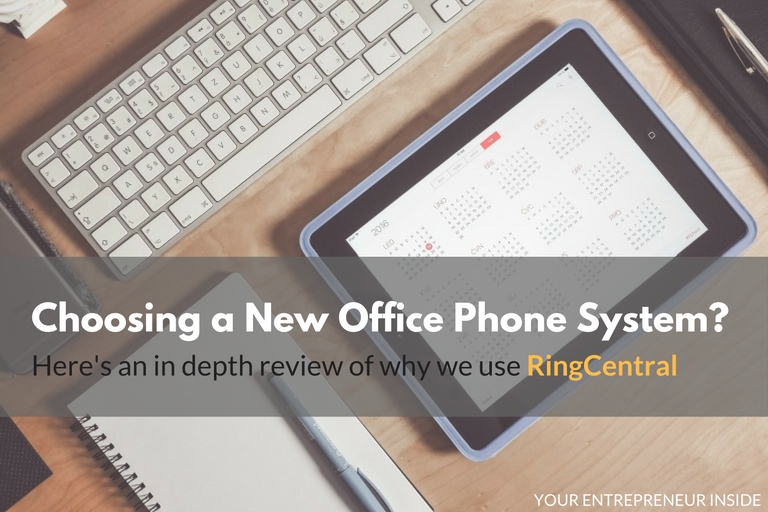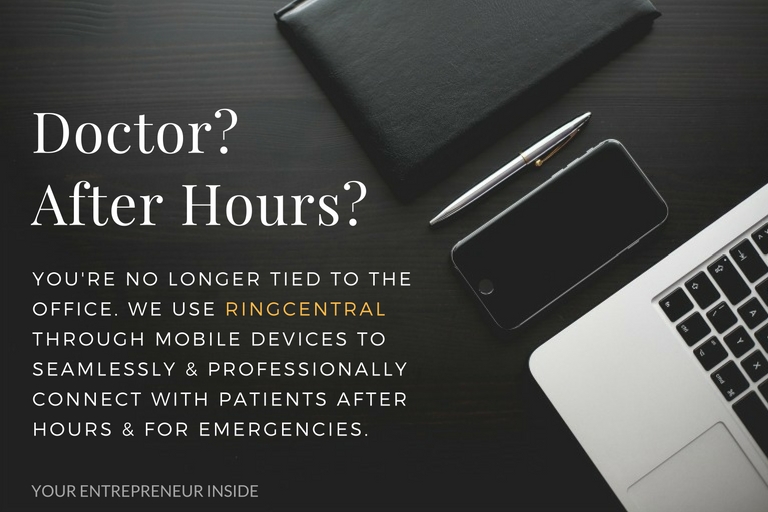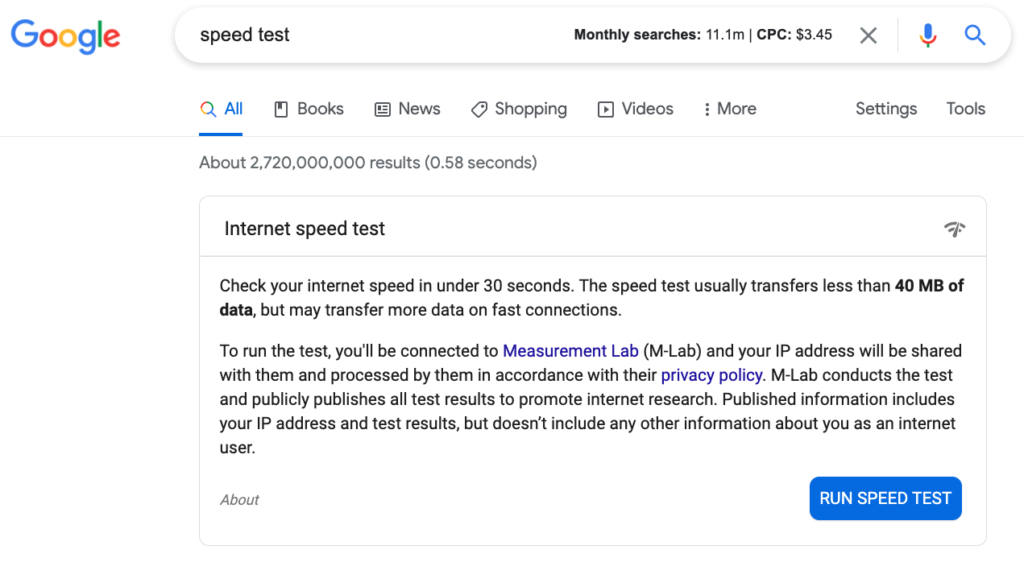
My wife is a general dentist in Austin. I comprehensively researched and tried cloud phone systems for dentists and doctors and want to help you (1) become familiar with small business office phone systems and (2) demystify and take the guesswork out of medical and dental office (small business) phone system software selection in a “done-for-you” or “done-with-you” way.
As my wife began to put the many pieces together to start a new dental practice in Austin, I had the privilege to come alongside her and help with the “business” end of launching. In doing so, I managed our small business software selection process across our small business medical technology stack, did hands-on evaluation of all the small business startup software tools and systems, and implemented and configured the tech stack, including the dental office phone system.
While I had plenty of experience starting and scaling online businesses, as a dentist, my wife was going to launch a “brick and mortar” operation. The advancements in medical office phone system technology, namely cloud-based solutions, provided a lot of options, and with research and some trial and error, we now use the best dental office phone system.
We Use RingCentral Phones in My Wife’s Dental Office
RingCentral has given my wife tremendous flexibility in how she runs her dental practice, increased professionalism of the practice as a whole, increased efficiency across her team, and, it’s been a far more affordable solution than we ever thought possible.
RingCentral is a cloud PBX phone system that’s packed with great features, which translate into a tremendous amount of benefits that cater to my wife’s busy schedule, it’s rock solid (i.e. we’ve experienced only one issue over multiple years of use and it was remedied swiftly), the support is spot on, and the price is quite reasonable.
PBX stands for private branch exchange, in essence, it’s what brick and mortar businesses have traditionally used to stand up a private telephone network. Because phone connectivity is so important to a dental practice, to any medical office or small business for that matter, and we need some relatively advanced functionality (for instance, robust call routing, ringing multiple phones in the dental office simultaneously, handling emergency after hours patient calls, etc.), we began looking at PBX systems.
Traditional PBX phone systems are outrageously expensive and difficult to stand up and maintain, especially for a dentist! However, there is a better way, and it comes with the gift of cloud-based phone technology.
Cloud-Based Phone Technology Is the New Standard for Dentists
Lucky for us, the 21st century has ushered in the era of the cloud, and we can now leverage cloud-based PBX systems.
A cloud-based PBX phone system for a dental office will give you everything you know and love about an advanced telephone system, a host of additional features that were never even possible with a traditional PBX (connect to, use, and manage your entire business phone system from any device anywhere in the world), and package it, relatively speaking, at an extremely manageable and reasonable price point, one that’s entirely sustainable for a private single doctor dental practice (and, of course, practices that are far larger).
If you’re starting a new dental practice, medical office, or small business that warrants a robust telephone system, or, want to take a huge step forward in what your current phone system can do and reduce monthly cost, you’ll want a battle-tested solution like RingCentral.
Here’s the Reality of How Small Business Phone Systems Compare and Stack up Against One Another
I’ll transparently walk you through our journey in how we evaluated different small business phone systems from the eyes of a dentist trying to start a dental practice so you can draft off my trial and error, and get to value that much faster.
RingCentral Is the Cloud PBX Phone System My Wife Uses in Her Private Dental Office
After investigating and researching what AT&T had to offer, followed by actually using Jive Communications for several months, my wife, a general dentist in Austin who has her own private dental practice, began using RingCentral and we’ve enjoyed doing so for years now.
RingCentral provides a truly unified, seamless, and complete phone communication system for a dental practice that spans all devices (be that mobile, tablet, desktop, and standard handset), is reliable, and backed by solid customer service and support, and it doesn’t break the bank.
Some of the features of RingCentral that cater well to my wife’s dental practice include:
- Highly configurable and robust call flow, call management, and answering rules – with a dental practice that’s open Monday through Thursday, you need to seamlessly route callers (who are patients) appropriately both during business hours and after business hours. RingCentral lets us do all this effectively, and it’s entirely automated, you set it up once and let it run.
- Ring all phones simultaneously in the dental office or individually – part of the configurable call flow is the ability to ring every phone in the office simultaneously, perfect for main office hours where all hands are on deck and the team is distributed, physically, throughout the office (if your front office coordinator or receptionist is not sitting at their desk, that’s ok, they’ll still hear the phone and be able to pick up any of the handsets throughout the office). Separately, with RingCentral you also have the flexibility to ring only individual phones, for instance, during certain office hours when you only want the phone to ring at the front desk while the doctor’s attention is focused on working with patients and should not be diverted.
- Great alerts and notifications, especially for emergency calls after hours – after hours emergency calls from patients can easily alert a mobile phone of the doctor or an entirely different line for an answering service, and alerts and notifications triggered by leaving a voicemail can be sent via text (Business SMS) and/or email to any number of parties, all configurable to your choosing.
- Calls and texts from mobile devices “look” just like an office phone to patients – this is especially helpful in emergency calls and after hours situations, to both maintain professionalism and privacy when a doctor needs to use their personal cell phone to reach out to a patient. The RingCentral app for mobile devices allows the doctor to connect with patients via phone and text / Business SMS and have the caller ID show as the main office phone number – naturally, this is perfect for after hours or situations where the doctor is traveling and just not physically in the office yet wants to maintain the professionalism of using the office phone rather than a personal cell phone line.

- Flexibility with phone system greetings – with RingCentral, you can easily change and use different office greetings, great for planned holidays and last-minute office closures due to inclement weather, and there is a ton of flexibility in how you can record greetings. For example, you can easily trigger the RingCentral system to call your phone and you can record a new greeting and save it to the system or you can even have something professionally recorded and upload that audio file to RingCentral – this is what I do, I have professional audio recording equipment, edit the audio greetings, and upload them into RingCentral.
- Voicemails and faxes get sent to email – with all voicemails and faxes routed to email, it allows you to easily keep track of and retrieve messages. Notifications and alerts are robust, and highly configurable as well, so the office team knows exactly what’s happening at all times. For instance, while a blinking light on a desk phone is nice to alert you to the fact there’s a voicemail waiting while you’re in the office sitting at your desk (which you still get with RingCentral by the way), but with everyone being so comfortable working in an email inbox or on a mobile device, it’s nice to be able to visually see messages and notifications of voicemails and faxes by way of email or text, to not only access them straightaway from that device, but to know exactly when they came in without wading through various phone prompts.
There’s no lack of features with RingCentral. As a medical office, the RingCentral phone system surpasses all of our current needs and there are a host of additional small business productivity and communication tools RingCentral provides, that frankly, we don’t even take advantage of yet, be that online meetings, conferencing, or collaboration tools, all of which come at no additional charge and are there for us as we continue to expand and grow.
The total monthly bill, including all taxes and fees, for our three (3) line RingCentral Office system is $114.17 – everything is included, there are no additional packages or products needed.
Business VoIP Phone System Provider Jive Communications, Stay Away, Here’s Why
Jive Communications is the first voice over Internet protocol (VoIP) for business phone system the dental office used at startup.
A three (3) line phone service with Jive Communications totaled $125.68, which included a $4.99 charge to host your telephone number. Not outrageous pricing for a small business owner that relies on a phone system to run their business effectively.
I really liked setting up the call flow technology in Jive. They allow you to map out the call flow of your phone system in a visually appealing manner – this was my favorite thing about Jive.
Unfortunately, when we used Jive Communications (in 2013), they simply were not ready for prime time and for the sake of the dental practice, we had to move off them.
In the few short months we actually used Jive phone service, I had well over 100 support ticket emails across numerous unique support tickets.
I had to break it to a Jive Support Engineer reaching out to me to follow up on, as you may have guessed, an open support request, that we had canceled our service and moved off the Jive platform!
We experienced a number of issues with Jive’s cloud-based phone system, including:
- Buggy and unpredictable behavior with ISP equipment – Jive simply did not work consistently and reliably with the router and cable modem from our Internet Service Provider (ISP). We get Internet service from one of the largest ISPs on the planet and use a common small business workhorse of a router and cable modem, there’s absolutely no reason why incessant power cycling of equipment should be needed.
- Jive Communications’ virtual fax service did not work – you’re familiar with virtual fax, eFax, or Fax to Email technology, where incoming faxes are sent to your email inbox as attachments, it’s critical technology for a dental practice, and in plain English, Jive’s solution flat out did not work. Here’s a response from a Jive Support Engineer to a support ticket with the title “receiving fax” that will give you an idea of what we were dealing with:
Thanks for your call today. Unfortunately, the fax you are trying to receive is not compatible with our efax system. If your business is dependent on fax, my advice is to move your fax number over to an analog fax provider, such as CenturyLink or your local landline provider. That is currently the solution that provides the most compatibility across all possible fax platforms since analog systems are already configured for fax. I would strongly suggest that you keep Jive’s phone service, however, so you don’t lose features and functionality.”
I’m not a rocket scientist, but I thought a fax number should be capable of receiving faxes? And the proposed solution to the problem is to go out and purchase something from a competitor?
- Phones did not ring intermittently – what finally forced us off Jive Communications was an issue where our phones were just not ringing when patients or others attempted to call the office. We unfortunately found out about it by way of a specialist’s office trying to get a hold of us. How disappointing and embarrassing to not even be able to take calls from patients and other providers. Despite providing exhaustive detail and log files to Jive Support, we never got to root cause of the problem.
Every time there was a negative impact on my wife’s business because of the Jive phone system, or a bad customer service experience resulted from, say, patients not being able to connect via phone with the staff because of a Jive issue, I felt personally responsible. It was me after all that researched options and selected the phone system for the dental office.
There is a silver lining in this unfortunate experience with Jive Communications.
While it was painful at times battling through issues with Jive, ultimately, it was for our good. Out of struggle comes growth, and the problems we experienced allowed us to hone in on precisely what we needed in a phone system solution for a dental practice.
Hopefully there’s value in this for you too, perhaps you can draft off the trial and error I went through and it will help us all level up.
Jive may very well have corrected some, if not all, of the issues we experienced, and for the sake of the businesses using the platform, and the customers of those businesses, I absolutely hope they have evolved and matured the Jive platform.
Why Dentists Can Avoid AT&T Small Business Phone Service
Clearly the big name of AT&T makes you feel comfortable as a small business owner. You would expect AT&T to be robust in features, perhaps not on the cutting edge, yet close, and offer solid pricing given good old economies of scale.
Well, here’s the reality check with AT&T.
If you dig into AT&T small business phone service, you’ll see that you basically get a traditional landline, with some clunky features layered on top of it that probably came through acquisition of other technology providers over the years. What this translates into for a small business owner is that with AT&T you simply do not get the benefits of a cloud-based platform, seamless connectivity across any device, and, your monthly bill adds up fast.
With AT&T, there’s no concept of mapping out complex call flows, for business hours and after hours, or creating slightly more complex logic to introduce an emergency line, which is a critical must-have for medical and dental offices trying to serve patients of record.
Here’s what a set of monthly charges for a three (3) line AT&T business phone system looks like when attempting to cobble together the piece parts that cloud-based vendors can oftentimes do so elegantly:
- AT&T Business Local Calling Unlimited A – Voice: $150.00
- AT&T Unified MessagingSM: $14.85
- AT&T Business Unlimited Calling SM II: $45.00
- Inside Wire Maintenance Plan: $15.00
- Jacks and Wire Installation: $0.00
- Additional Mailboxes: $9.00
- AT&T Online Fax 600: $20.00
That totals up to $283.85 per month, before taxes and fees!
That’s a 2x difference above and beyond what we pay for RingCentral.
Unfortunately, AT&T tries to stack a host of disparate tools together and they miss the boat on a unified, simple, and cost effective solution.
AT&T Online Fax is a great example of what’s wrong with their offering. The fax solution, or product, is managed entirely separate from the rest of your system. When I did the preliminary research on the AT&T offering, I even found a typo in their online sales copy, yikes!
…Select the plan that fits your needs. Plans and pricing are based on the total number of pages (300, 600, 1,000) you can send and recieve each month.”
I would not be surprised to see AT&T make a strategic acquisition of an all-in-one cloud-based PBX phone system and completely pivot their small business phone system offering.
Does Your Dental Office Meet the Minimum Requirements for Reliable and Clear VoIP Phone Service?
With RingCentral being VoIP, you do need a reliable high-speed Internet connection in the office. With the proliferation of broadband Internet and 5G wireless across the country, outside of pure rural areas, whether you have enough speed coming in and out of the office is, relatively speaking, a moot point.
RingCentral recommends upload speed of at least 90 kbps (128 kbps for Polycom phones) per phone line in the office.
How to test small business office internet speed for VoIP. What are good internet download and upload speeds in your office?
- Open an internet browser from a computer wired into the same network to which your RingCentral phones will connect
- Google “speed test”
- Click the blue “Run Speed Test” button
- Validate the download and upload speeds

As a cloud PBX system, RingCentral calls are routing through the Internet connection in your office. Should Internet connectivity physically fail for some reason inside your office, with several clicks of a button on a mobile device, I’ve configured RingCentral for my wife’s dental practice to easily route calls to cell phones of the staff so that the office doesn’t skip a beat – that’s subtle, yet there’s real value there from a backup and recovery perspective.
A Comprehensive Cloud Phone System Is a Must for Any Medical or Dental Office
Knowing what I know about traditional land lines, after using them for years for my own corporate work, the capabilities of a cloud-based complete business phone solution like RingCentral are unsurpassed and it would not be possible to have the assurance of great patient care and flexibility, especially after hours, that my wife and her dental practice have without it.
My wife’s dental practice has been using RingCentral since 2013 and we will continue to use it for so many different reasons.